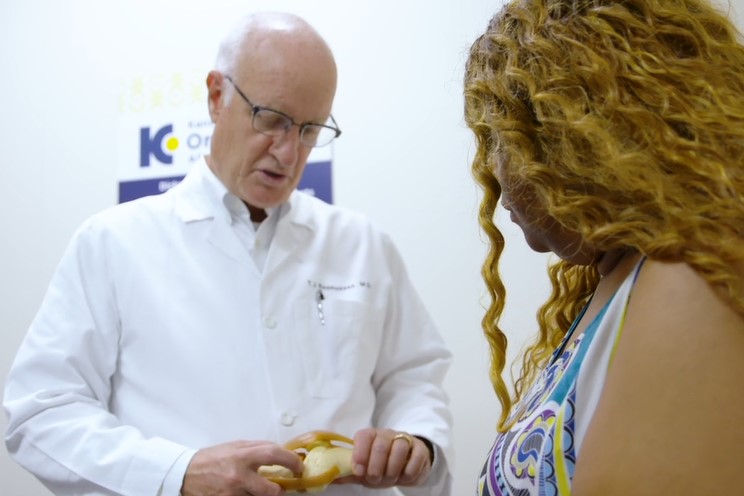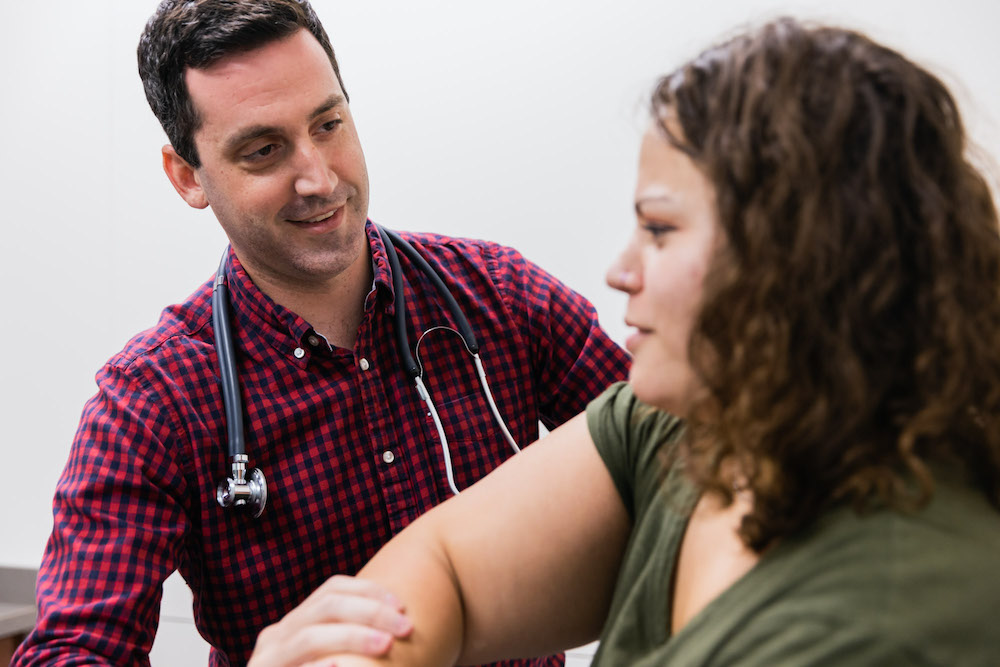 As a patient, there are a number of things you can do to help ensure your safety as you prepare for and undergo treatment for an orthopedic condition.
As a patient, there are a number of things you can do to help ensure your safety as you prepare for and undergo treatment for an orthopedic condition.
In honor of Patient Safety Awareness Week, March 13-19, we compiled a list to help you make informed decisions and feel in control of your care and treatment.
1. Come prepared for your orthopedic visit.
Make a list of your current medications, surgeries and family medical problems, as well as your questions and concerns about your condition and possible treatment options. Come prepared to discuss these issues at your appointment, which will help your physician thoroughly assess your situation and determine the appropriate treatment.
2. Communicate regularly with your physician.
Whether you are seeking surgical or nonsurgical treatment, it is important to communicate regularly with your physician and his patient care tech to understand your procedure and anticipated outcomes. Ask questions and follow up if you don’t understand the answers.
3. Research your orthopedic condition and treatment options.
Educate yourself by researching your orthopedic condition with credible sources online, in addition to asking questions of your physician. If you are considering surgery as a treatment option, talk to your orthopedic surgeon about the procedure ahead of time. Ask about the benefits and risks associated with the procedure, possible complications and expected recovery time. If you have had any problems with anesthesia, you should also discuss this with your surgeon.
4. Involve others in your orthopedic care and treatment process.
Identify a trusted family member or friend to come with you to your appointment and drive you home the day of your orthopedic surgery or procedure if necessary. He or she may be able to help you remember things from your appointment and ask questions to help you understand your condition and treatment options.
5. Review pre-operative instructions.
If you are having surgery, it is important to follow the pre-operative instructions that apply. Pre-operative instructions may vary depending on your physician and the location of your procedure, so always check with your physician or our clinic to clarify specific orders. Depending on your health history, your surgeon may require pre-surgical laboratory tests, advanced imaging tests, and/or clearance from your primary care provider. Be sure to clarify all these things beforehand.
6. If you are having a procedure at a hospital, check the hospital’s quality rankings, as well as other hospitals in the area.
Some hospitals have higher quality ratings than others. Sites like Healthgrades, CareChex and Hospital Compare provide information on quality of care to help you make informed choices when selecting a hospital for orthopedic surgery. Surgeons at Dickson-Diveley Orthopaedics perform procedures at Kansas City Orthopedic Institute, Saint Luke’s Hospital and Saint Luke’s South — all of which have high quality rankings (and we encourage you to visit the aforementioned websites to view the rankings and compare with other hospitals).
7. Wash your hands and encourage guests to do the same.
Hand washing is one of the easiest ways to protect your health. Wash your hands thoroughly using soap and water, and encourage your family members and friends to do the same when they visit you at the hospital. This simple activity helps keep infection rates low for you and other patients.
8. Know what to expect after orthopedic surgery.
Ask your orthopedic surgeon about the recovery process — how long it will take and how your pain will be managed, as well as how quickly you will be able to return to normal activities. In some cases, you may be able to return home the same day but will need to designate a friend or family member to drive you home. Clarify all this ahead of time so you can make arrangements as needed.
9. Follow discharge instructions carefully.
Following orthopedic surgery, you will be provided with discharge instructions, which may include occupational or physical therapy, as well as pain medication and follow-up appointments. It is important to follow your discharge care plan closely for the best possible outcome. Make sure you and your caregivers understand these instructions before you leave the hospital.
As mentioned, National Patient Safety Week is this month, but for the patient care teams at Dickson-Diveley Orthopaedics, patient safety is a top priority all day, every day. If you have any questions for our providers or staff, please contact us.
***
The medical information contained in the Dickson-Diveley Orthopaedics website is provided to increase your knowledge and understanding of orthopedic conditions. This information should not be interpreted as a recommendation for a specific medical or surgical treatment plan. As each patient may have specific symptoms or associated problems, the treatment regimen for a specific patient may not be the proper treatment for another.
Gaining knowledge and understanding of a particular problem or condition is the first step in any medical treatment plan. We believe the information presented on our website will be helpful for those individuals experiencing neck and back pain, orthopedic injuries or other related problems. However, this information is not intended to replace the advice of your family physician. You are encouraged to consult with your physician to discuss any course of treatment presented or suggested.


